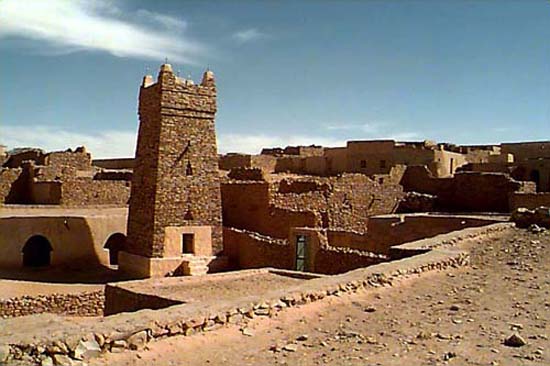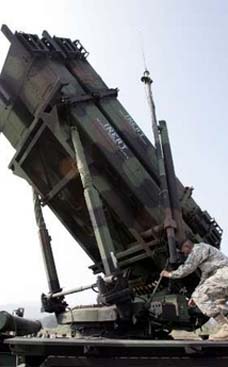
"A few weeks before Andi and I took our extraordinary trip to Morocco, I planned and executed my first funded project here in Boghé: a two-week conference for entrepreneurial hopefuls. The level of funding was meager—just over US$1200—but more than adequate to satisfy a project whose goals were intellectual rather than physical. Building a hospital takes big bucks; building capacity does not."
Peace Corps Volunteer Aaron D.D. writes: I was nervous that both of these additions would fall flat on their faces, for in a Peace Corps legacy of nearly 40 years in Mauritania, there are usually reasons why programs have been designed the way they are
My Big ($1200) Project
5 08 2006
A few weeks before Andi and I took our extraordinary trip to Morocco, I planned and executed my first funded project here in Boghé: a two-week conference for entrepreneurial hopefuls. The level of funding was meager—just over US$1200—but more than adequate to satisfy a project whose goals were intellectual rather than physical. Building a hospital takes big bucks; building capacity does not.
The seminar was designed thusly: The audience would be comprised of 30 energetic youth (read: 20- to 30-year-olds) of Boghé who had demonstrated interest in starting a business but who had probably failed their BAC, the cruel test that marks the end of primary education and serves as an extremely tight filter to allow only the very gifted to become scientists or doctors or junta-commanding colonels. The 30 local youth would participate in two weeks of business trainings. The first week, held only in the mornings at Boghé’s library, was a total of 20 hours of theory-based sessions ranging from Feasibility Studies to Microfinance to Accounting to Marketing, and presented by two visiting volunteers, two Mauritanian smarties, and myself. The second week was four days of an internship program in which each participant would shadow a business to practice the application of last week’s theories. The final day was a regroup and discussion of the internship as well as final summary and evaluation of the program.
The internship program was my own invention and something that distinguished it from other PC Mauritania trainings, as was my other major addition: homework. I was nervous that both of these additions would fall flat on their faces, for in a Peace Corps legacy of nearly 40 years in Mauritania, there are usually reasons why programs have been designed the way they are.
In my former job at the learning department of an accounting firm, I had also participated in the design and delivery of conferences. I was even “responsible” for a small conference in May 2005, one month before I left. Small, in that instance, was about 100 participants and a working budget of tens of thousands of dollars. What we do here, in Mauritania, is microscopic.
Of course, the projects differed, although not in the ways you might expect.
With both projects I met with the presenters in the weeks before the conference to help them conceptualize their sessions and badgered them to submit their session materials early to prepare the handouts. At my old firm in Chicago, this was accomplished with only days or hours to spare, and badgering took the form of multiple weekly phone calls or personal visits from Aaron the Curriculum Nazi. In Boghé, the materials were delivered in plenty of time and the presenters barely required any pestering!
In Chicago, my responsibility over the conference resided solely on the curriculum side; this time, I also wore the hats of logistician, accountant, and publicizer. Not that they are very complicated tasks. Shoring up conference space meant stopping by the local library to make sure there weren’t any conflicts. There weren’t. And publicizing the event meant sending convocations–typed up invitations–to each of ten local youth associations.
These youth associations are one of the most astounding creations I have witnessed. Most of their members are 20- to 30-somethings without real work or a place of their own. As an acting body, they usually don’t do much besides attend NGO-sponsored seminars or talk big about the “development of the city” and how great things are going to be. But as a communication mechanism, they are unparalleled. Within one day of sending out the convocation, the participants were all notified of the date and time and somehow, by some grace of God, all 30 participants showed up that Monday morning. I don’t know how they do it; I just know I’m going to use this network as much as possible.
The 30 participants sent by the youth associations, too, were incredible – bright, willing to think critically and do the necessary work. So when I call the event a success, it is only by the magic of the youth associations that I was given a full, active participant body.
I call it a success because the first week went very smoothly with a total of 20 hours of delivered sessions or discussions. When I faltered on a review of basic bookkeeping, some of the smarties in the class seized the debate, resolved the confusion and made sure everyone understood. Participants generally did the homework so that we were able to have a real conversation about it each morning. Snacks were more or less on time, and ending times were more or less stuck to.
I call it a success because all but 2 of the participants accomplished the second week’s internship, which is remarkable because it involved no supervision from me or the other presenters during that time. When we reconvened the final Friday, we had a fantastic 2-hour discussion about real issues they encountered in completing their assigned tasks during the four-day internship. Thus energized by the two weeks of intense work they had gone through, we took a proud photo with everyone’s certificates.
I call it a success even though the primary objective, preparing them to start their own businesses, was not really accomplished. In all of my planning for the conference, I failed to properly include enough build-up to leave them with the impetus and the personalized strategies to start their own enterprises. A brief lead-in and idea-generation period meant inadequate time to develop their own ideas. Personal business plans were attempted but finally forsaken in favor of more fruitful pondering on Bill’s Fictional Woodshop or Kevin’s Fake-o CD Store. Primary objectives, I decided in the warm afterglow of the conference, are overrated.
We’re scheduling a follow-up luncheon to try to evaluate the long-term impact, if any, of this conference. Until then, however, I know I made at least a little difference. One of the participants had chosen a friend of mine, Chiekh, to shadow during the internship. I saw Chiekh at a baptism the other day, and asked him how his business was going. “Great,” he said, “and I’m going to Nouakchott in a couple of days to buy more merchandise. But don’t worry! I’m letting Mamadou [participant who interned with him] take care of the shop until I get back. He seems really great.”
At least, with $1200, I introduced Chiekh to Mamadou.
















